MTiH #8: Zack Wagman on taking your time.
“I always say that publishing is a very long game, and it pays to have patience.”
Friends! Hello. Another overwhelming week in the U.S. of A., but I’m very excited to be here to start your weekend with my first installment of Making Things is Hard in 2025. It’s a special one, as I’m talking to Zack Wagman, executive editor at Flatiron Books, and one of my dearest friends in the world.
We’ve literally known each other since we were three, nerding out together for decades over movies and books and comics and TV. When I talked about my deep love for video stores a couple weeks ago, I almost included that Zack and I spent hundreds of Friday nights together in middle and high school where our entire plan was: 1. Go to video store. 2. Rent movie. 3. Watch movie. (There was a stretch of time there where this plan was preceded by a duo guitar lesson we would take with a great guy named Lee Kostrinski. Lee, if you’re reading this: HI!)
(There is no way Lee Kostrinski is reading this.)
ANYWAY, Zack is a fantastic editor who’s published many stellar books, including novels by Dennis Lehane, Steph Cha, Jason Rekulak, and Adam Sternbergh and nonfiction by Marty Baron, Beto O’Rourke, Chris Nashawaty, and Abby Phillip. He’s generally attracted to “high-concept storytelling, distinctive voice, great characters, sense of humor, pop culture, and narrative politics.”
Also worth mentioning that Zack had a heroic role in getting my publishing career started, doing early, thoughtful reads of Denton Little’s Deathdate and kindly explaining to me what rewriting was after I showed him a second draft that wasn’t all that different from the first. He also connected me in 2013 to Mollie Glick, the wonderful agent who still represents me today.
Zack and I talked over Facetime. Our conversation has been condensed and edited for your enjoyment.
What are your favorite moments of being an editor?
I love the early conceptual edit, when the book feels really malleable and I can suggest almost anything within the confines of the book’s structure and life. That’s the most rewarding part to me. That’s when I’ve read the book, at least once, sometimes twice, and I can go in—I’m reading it slowly, I’m taking a lot of notes—and I can start to see what the book needs.
It’s very bird’s-eye view, from 30,000 feet. And it’s just the most fun way to talk about a book with an author. It’s still very private; the rest of the company’s not involved yet. I don’t know this for sure, but it seems that it’s when the author feels the most seen.
That’s probably the purest moment of collaboration between you and the author.
Yes, it’s after I negotiate with the agent but before all the other things that go into a publication, like scheduling for publicity events, brainstorming marketing efforts, or setting up a landing page for a pre-sale.
My job during all of that is to be holding the author’s hand, advocating for them when necessary,and making sure everything is going smoothly. But in terms of my creative output, it’s during that early part of the editing process.
But maybe the purest version is when the book comes to me on proposal, or it’s a partial novel, and I edit, say, the first hundred pages. So then the author can see my editing style, and while they continue to write, they can refer back to questions I raised, things to keep an eye out for. Then when I see it more fully, I already have an idea of what the book could be.
I’ve always been very lucky having you as a best friend and then becoming an author myself, getting this kind of inside peek at What is the editor thinking? So that’s what I’m excited to talk to you about now, basically: What is hard in publishing? I’m curious specifically about the state of things because I know it’s tough in all media.
Everything is so hard right now. It feels the hardest, actually, that it’s ever been. And in my time in book publishing, the other really tough points were the financial crisis in 2008-09 and then the Kindle becoming popular in 2011-ish, e-books taking off, which was around the time of 50 Shades of Grey.
But that sort of evened out. More recently, it’s been the fallout from the pandemic, and what’s going on in the aftermath of Trump’s re-election… It’s so uncertain. The tariffs are impacting costs which are impacting our P&L’s. [Note: Profit & Loss statements. I had to ask.] The fractured media environment makes it harder to get people to know about books.
So, publicizing the book is hard. Getting it to the right readers… There’s more pathways to do it, but it’s also hard.
Can we start over? This is gonna sound so depressing.
[We laugh.] Well, yeah, I’m thinking, We’ll have to find ways to make this feel hopeful too, but I appreciate the candid view on what’s going on. The idea typically with these interviews is talking about something hard that you’ve gone through and ultimately come out the other side of, so maybe let’s pivot to one of those.
Okay, I have a good story for this. I always say that publishing is a very long game, and it pays to have patience.
So during one of those first downturns in the industry, and during the financial crisis—end of 2009, early 2010—I was an editor at Vintage, and I could not acquire anything. I was bored out of my mind. And I would just go to work and read the internet all day.
I was trying to get something going, though. I was reading this guy who was writing these great articles for The New York Observer. They were so long and in-depth about these arcane elections from, like, a congressional district in Brooklyn in 1974, and how that paved the way for Schumer, and I was just loving the way this guy wrote.
So I wrote him an email, and we went out to lunch, and I said, “You know, you really should write a book.” And I was showing off—I was like, I’ve read Robert Caro, I’ve read Doris Kearns Goodwin, doing all that. And he was like, “Oh yeah, I really want to write a book,” but he never knew what he wanted to write about. That was 2010.
And then I would have lunch with him twice a year, and then finally in 2015, he told me he had an idea. But I was about to move jobs, I said, “I’ve waited five years for this, just wait a beat until I’m settled.”
A few months later, we finally made a deal. He wanted to write a political history of the 1990s. Took him three years to write it. And then finally, in 2018, it came out. The author was Steve Kornacki.
So that was eight years from when I first contacted him to when it came out. And in the interim, he became famous on NBC. So that was fortuitous.
You know the saying where it’s like, do the hard work so you’re ready when the luck happens? I had put in the work, and then it was just lucky that he became this famous political interpreter for the masses.
Yes! I love that.
It’s been his one and only book, and I’m very, very proud of it. It’s called The Red and the Blue. You should link to it in your newsletter.
It’s already linked, my man. You’ve always been really good at that as an editor, just chasing a feeling like, “Oh, I think this person has a book in them.” That’s led to some of your other books, right?
Thank you, I’ve gotten lots of books that way. I’m sure as a writer you’ve heard, Write the book you want to read in the world. I also subscribe to Publish the kind of books you want to read in the world.
You’ve had two of your most successful books in the past few years—Hidden Pictures and The Last One at the Wedding, by Jason Rekulak, with Hidden Pictures very much buoyed by love on BookTok. Looking at their success, are there some things you can pinpoint that helped? Obviously you can’t easily recreate that, or every editor just would.
Well, it helps that the author is Jason Rekulak. What a guy! He’s serious about his work, while also unpretentious and non-precious, so editing with him is a real joy. And he just appreciates good genre storytelling, so he’s a good literary citizen. He blurbs, he’s judged things, he’s been nominated for things, and he boosts other authors all the time.
But on a more pragmatic level, it seems like right now people are interested in escapist fiction that they can talk about. Word of mouth is very big. Word of mouth is often driven by a clever twist, especially in the thriller genre (where I mostly publish). Jason knows that and aims for a twisty read.
But my real theory as to why Hidden Pictures took off is because it's actually much shorter than it looks, text-wise. But when you bulk it up with seventy-five pictures, it feels like a big book. You fly through it because it’s a) suspenseful and b) actually very short. This is true of my next most successful book, Kevin Wilson’s Nothing to See Here. Also short, also high-concept, also funny, also kind of strange.
Short. Okay. Yeah.
People like short books.
Well. I guess I’d rather have people reading short books than no books.
I personally don’t understand why people don’t want to read long books.
Right? Getting lost in a world for longer.
But the world wants what the world wants.
No comment. So shifting gears, what advice would you give novelists at this moment? Obviously you look for very specific things in books, but just in general, considering the nature of the market, what would you advise?
First, read widely. Read what’s being published right now. And read in the space that you want to publish into. There’s a responsibility for aspiring writers to understand what publishing is like. So you have to read current books that are on the bestseller list right now so you can have conversations about books of the moment.
And number two: I think it’s important for writers to form community. I think online is great for that. Newsletters like this are great for that. It’s a hard business. Everyone’s experience is different, so find your people and be open about your experience so it’s not so isolating.
Fantastic advice.
I feel like I’ve been this harbinger of cynicism and gloom (welcome to publishing!) so let me try and lighten it up. I’ll end on this: my favorite books are the ones where you can tell that the author is having fun writing it. I could name a dozen books where that’s the case, including Denton! It comes off the page, and it’s infectious. Reading should be fun. Writing should be fun too, even though it’s hard work. So write with abandon and let your editor polish it up later. That sense of unrepentant creative joy will sweep a reader up and they’ll remember that experience forever.
Huge thanks to Zack for talking with me today! And huge thanks to him also for trick-or-treating with me in 1997!
Thanks as always for being here. Hope you have a restorative weekend, and, if you’re able, make some calls to Wisconsin or Florida ahead of Tuesday’s (HIGHLY CONSEQUENTIAL) special elections. And then throw your phone into a hole the rest of the time!
Big love and Eid Mubarak to all who celebrate. See you soon.


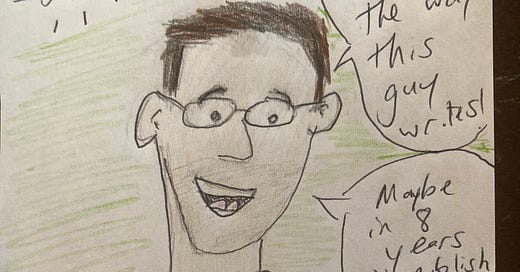


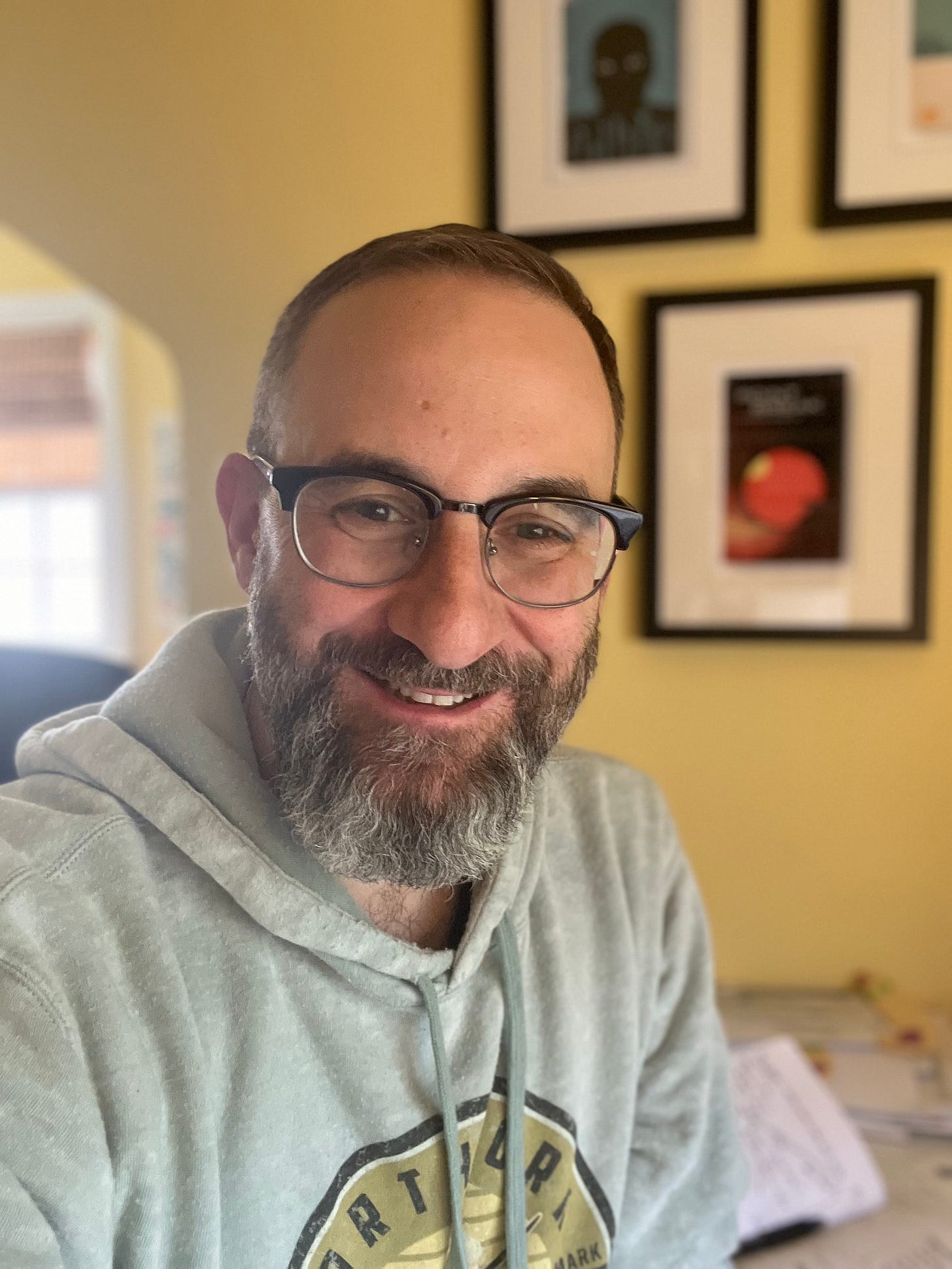
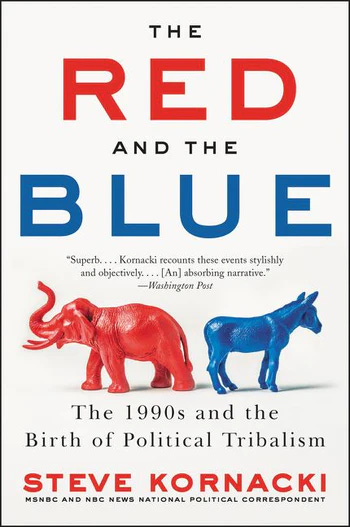
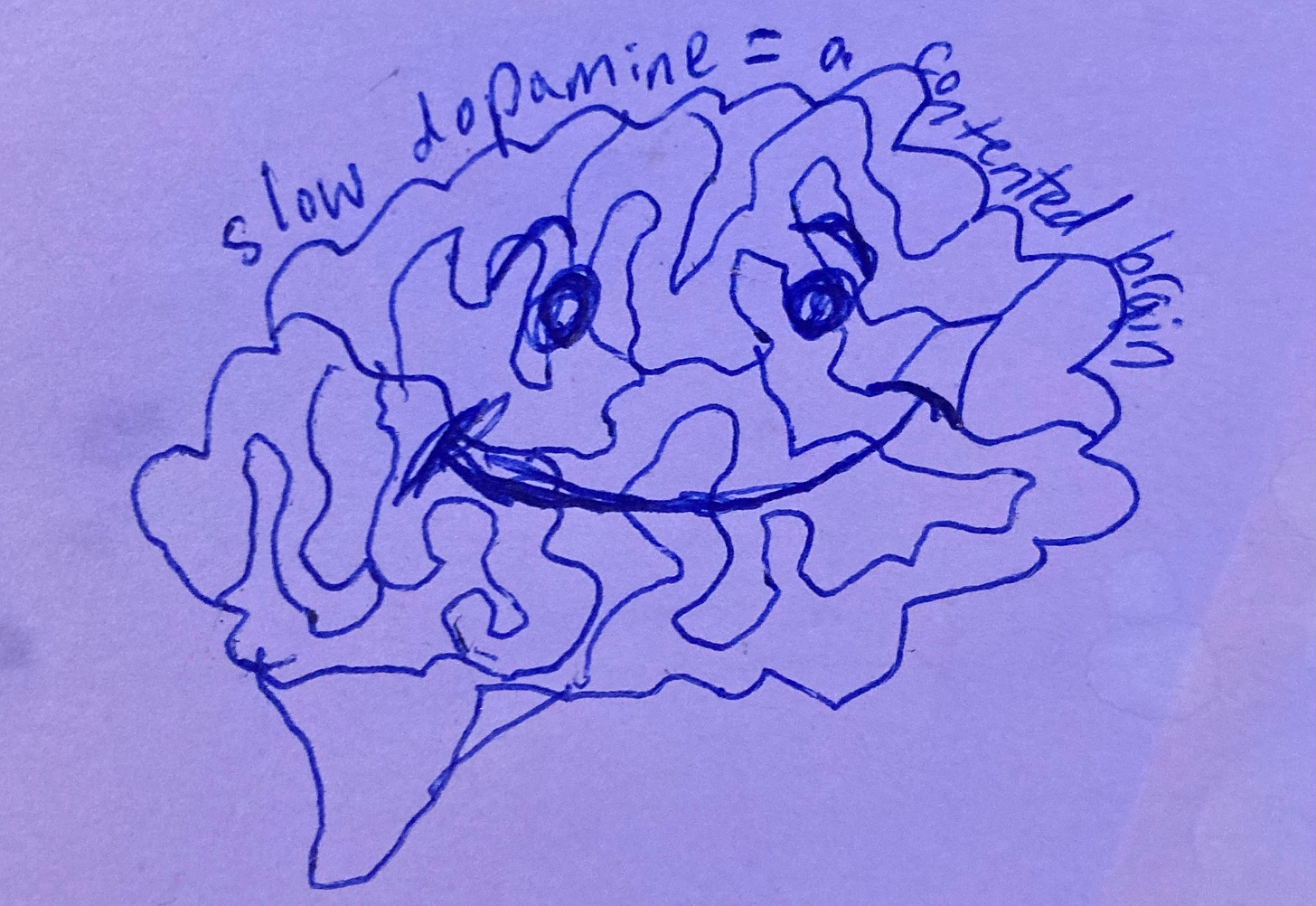
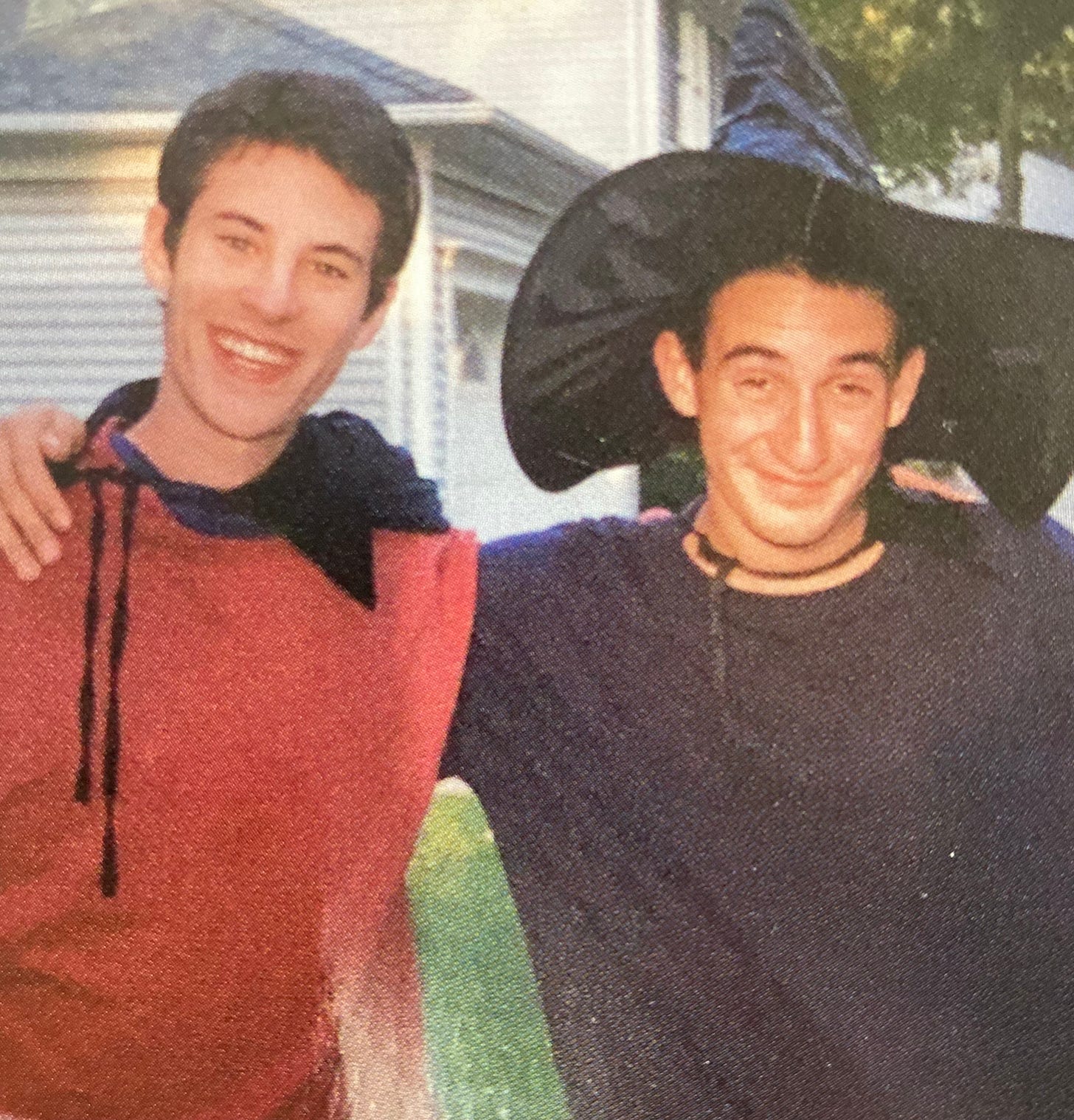

Was great to read this interview with you and Zack. Kinda like going home again. Looks like you’re both grownups now!
PS having lunch with your mom this coming Wednesday- can’t wait.